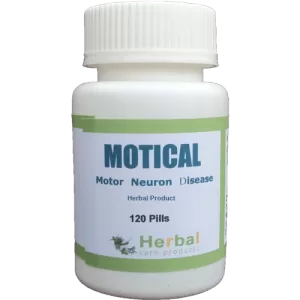No products in the cart.
Return To Shop 0 Cart $0.00 0
No products in the cart.
Return To Shop Shopping cart (0)
Subtotal: $0.00
Free shipping over 299$
Top 10 Power Foods for Motor Neurone Disease: Boost Your Health Naturally!
Motor Neurone Disease (MND) is a progressive condition that affects nerve cells controlling muscle movement, often impacting strength, mobility, and speech. While there is no cure, research indicates that a nutrient-dense diet can play a significant role in improving quality of life for those with MND. Here, we present the top 10 foods for Motor Neurone Disease that support overall health, reduce inflammation, and provide essential nutrients to help manage symptoms. Let’s dive into these power foods and their benefits!
What is Motor Neurone Disease?
Motor Neurone Disease (MND) is a rare, progressive neurological condition that affects the motor neurons — the nerve cells responsible for controlling voluntary muscle movements, such as those used for walking, speaking, swallowing, and breathing. In MND, these neurons gradually weaken and degenerate, leading to muscle weakness, stiffness, and eventual loss of mobility and control over vital functions.
Types of Motor Neurone Disease
MND includes several subtypes, each affecting different motor functions and progressing at different rates:
- Amyotrophic Lateral Sclerosis (ALS): The most common and severe form, ALS affects both the brain and spinal cord, leading to widespread muscle weakness and paralysis.
- Progressive Bulbar Palsy (PBP): This form primarily affects muscles involved in speech and swallowing.
- Progressive Muscular Atrophy (PMA): This variant usually impacts the muscles in the lower body first, leading to progressive muscle weakness and wasting.
- Primary Lateral Sclerosis (PLS): A rarer and slower-progressing form that affects the upper motor neurons, leading to stiffness and movement issues but often sparing life expectancy.
Related Articles: Different Types of Motor Neuron Disease and What They Mean for You
Symptoms of Motor Neurone Disease
Symptoms vary but often include:
- Muscle weakness and wasting
- Stiffness and muscle cramps
- Difficulty with speech and swallowing
- Trouble breathing as the disease advances
- Fatigue and challenges with daily tasks
Causes and Risk Factors
The exact cause of MND is unknown, though it’s believed to result from a combination of genetic, environmental, and lifestyle factors. About 5-10% of cases are hereditary, while the rest are sporadic, with no clear cause.
Top 10 Foods for Motor Neurone Disease
Nutrition can play a supportive role in managing Motor Neurone Disease (MND), helping to provide energy, reduce inflammation, and support nerve and muscle function. Here’s a look at the top 10 foods that can be beneficial for individuals with MND:

1. Leafy Green Vegetables
Leafy greens like spinach, kale, and Swiss chard are rich in antioxidants, including vitamins C and E. These antioxidants combat oxidative stress, which is often elevated in those with MND. Packed with magnesium and folate, leafy greens also support nervous system health and help maintain muscle function.
2. Berries
Blueberries, strawberries, and raspberries are rich in flavonoids, powerful antioxidants known to reduce inflammation. Consuming a variety of berries can help combat cellular damage and improve cognitive health, making them excellent additions to the diet of anyone managing MND.
3. Omega-3-Rich Fish
Cold-water fish like salmon, trout, and sardines are excellent sources of omega-3 fatty acids, which have been shown to reduce inflammation in the brain and nerve cells. Omega-3s also support brain health and may help slow disease progression. Aim for at least two servings of these fish each week to reap the benefits.
4. Nuts and Seeds
Nuts like almonds, walnuts, and seeds such as chia and flaxseed are packed with essential fatty acids, magnesium, and vitamin E. These nutrients are vital for supporting nervous system health and reducing oxidative stress. As a bonus, nuts and seeds are easy to add to salads, smoothies, or yogurt for a nutrient boost.
5. Avocados
Avocados provide healthy monounsaturated fats, which are beneficial for brain health. They also contain folate and vitamins C, E, and K, which help reduce inflammation. Avocados can easily be added to meals as a topping, blended into smoothies, or enjoyed as a creamy snack.
6. Turmeric
This golden spice is renowned for its anti-inflammatory and antioxidant properties. Curcumin, the active ingredient in turmeric, has shown potential to protect nerve cells and reduce inflammation. Add turmeric to soups, curries, or mix it with black pepper (which enhances absorption) for maximum health benefits.
7. Beans and Legumes
Rich in fiber, protein, and B vitamins, beans, and legumes such as lentils, chickpeas, and black beans are excellent for maintaining muscle strength and overall health. B vitamins, particularly B12 and folate, are crucial for nerve function, making beans and legumes powerful foods for those with MND.
8. Whole Grains
Whole grains like brown rice, oats, and quinoa provide sustained energy and are packed with fiber, which aids digestion and nutrient absorption. Whole grains also contain magnesium, which supports muscle relaxation and nerve health. Avoid refined grains and opt for whole, unprocessed options whenever possible.
9. Citrus Fruits
Oranges, lemons, and grapefruits are high in vitamin C and flavonoids, which boost immune health and fight inflammation. Citrus fruits help the body absorb more iron, a mineral often depleted in individuals with MND. This can help maintain energy levels and overall resilience.
10. Green Tea
Known for its rich antioxidant profile, green tea contains polyphenols that reduce inflammation and oxidative stress. Research suggests that green tea may protect nerve cells and support overall brain health. Enjoy a cup of green tea daily for a refreshing way to boost your health naturally.
Additional Tips and Remedies for Motor Neurone Disease Management
Incorporating these foods for Motor Neurone Disease into your diet can help provide essential nutrients, but it’s equally important to maintain an overall balanced diet, stay hydrated, and consult with healthcare professionals. Supplements and physical therapy can also serve as complementary Herbal Remedies for Motor Neuron Disease management.
While these foods and lifestyle habits may not offer a cure, they can help individuals with MND feel more energized and better equipped to face daily challenges.
More
More

